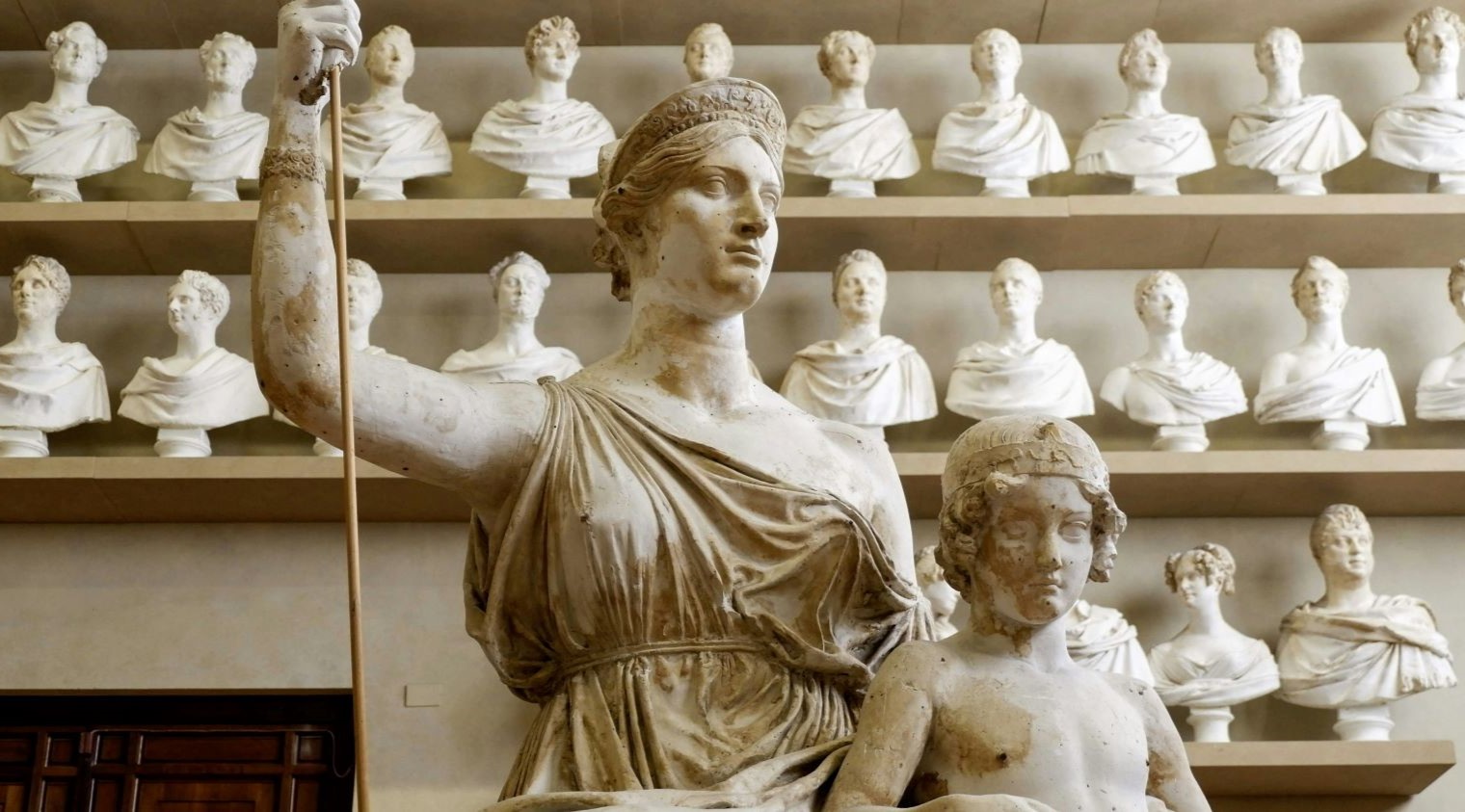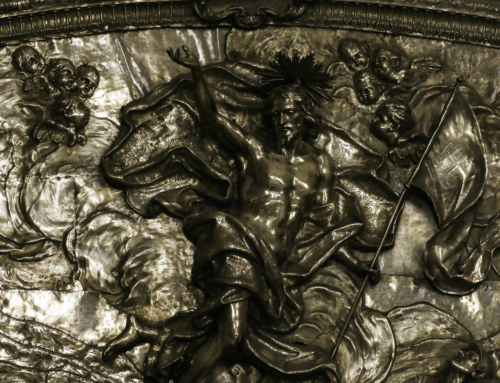The Psalmist has some harsh words for idols, those who make them, and those who worship them.
They have mouths, but do not speak;
eyes, but do not see.
They have ears, but do not hear;
noses, but do not smell.
They have hands, but do not feel;
feet, but do not walk;
and they do not make a sound in their throat.
Those who make them are like them;
so are all who trust in them. (Ps 115:5-8)
The Psalmist, enlightened by the Holy Spirit, tells us a deep truth—not just about idols, but about ourselves. Not only are idols, these statues or figures, unable to speak, see, hear, smell, feel, walk, or talk—but so are all who trust in them. Those who pray to idols and trust in them take on the qualities of those idols. Why?
According to Aristotle’s famous formulation, the mind is, in a way, all things. He sees a connection between physical sight and mental understanding. When we see something, the color and shape of what we see physically changes us. If I go into a yellow room, my sight becomes yellow. Similarly, when I understand something, my mind, in a certain way, becomes that thing!
Say I am reading The Lord of the Rings. The words give me the details: Frodo and Sam are in Mordor, and they’re beginning their final ascent of Mount Doom. But, we can ask, when I read, where does the story unfold? Is it on the pages only, or is it also in my mind? It is both! As incredible as it may sound, Aristotle’s idea means that my mind has taken in and, in a certain sense, become the story. This leads to the widespread complaint often heard about film adaptations of books—it’s just not the same as I imagined it.
The point: we are deeply changed by what we think about. You are what you eat, the adage says. But for Aristotle, you are what you think. And for the Psalmist—on the deepest level of all—you are what you worship. The thing you love, what you put your trust in, will change who you are.
For those who trust in idols—idols are what you become. The gods of Roman and Greek paganism were bickering, petty, and bargaining. Their worshippers, likewise, were calculating and fickle. They offered sacrifice to get something in return, and became angry at the gods when they didn’t hold their end of the bargain.
“That’s great,” you may think to yourself, “but I don’t worship any idols!” Really though, an idol can be anything that you love or think about the most. We can make idols of honors, wealth, and pleasure. We can make idols of food, social media, travel experiences, even other people. According to Aristotle’s and the Psalmist’s principle: you become like your idols.
Say you make an idol of TV. If the show you watch is entertaining, you might be entertaining as well—you can quote funny lines, and tell with great detail the drama of a certain series—but, the shows you watch are not your real life. You might be superficially entertaining, but you’ll also become predictable, repetitive, and not very deep. You will become like your idol.
All of us want to be good. If we become what we worship, what is the best thing? This is a question of the heart. What one thing is worthy of our attention, love, and worship? What is the one thing worthy of our daily thought? What is the one thing worthy of doing everything else for? What is the one thing that will transform me, and make me as good as possible?
The one appropriate thing for our worship—the one who is worthy of our gaze—is God. He is supreme being, he is unchanging goodness, and he is the only object worthy of our deepest contemplation. By giving him his proper place in the seat of our hearts, we become like him. God is wise, and we can share in his wisdom. God is compassionate, and we can learn compassion from him. God is truth, and he can shine his light in our minds. God is love, and in his sight we will love and be loved.
✠
Photo by Isaac D. on Unsplash







